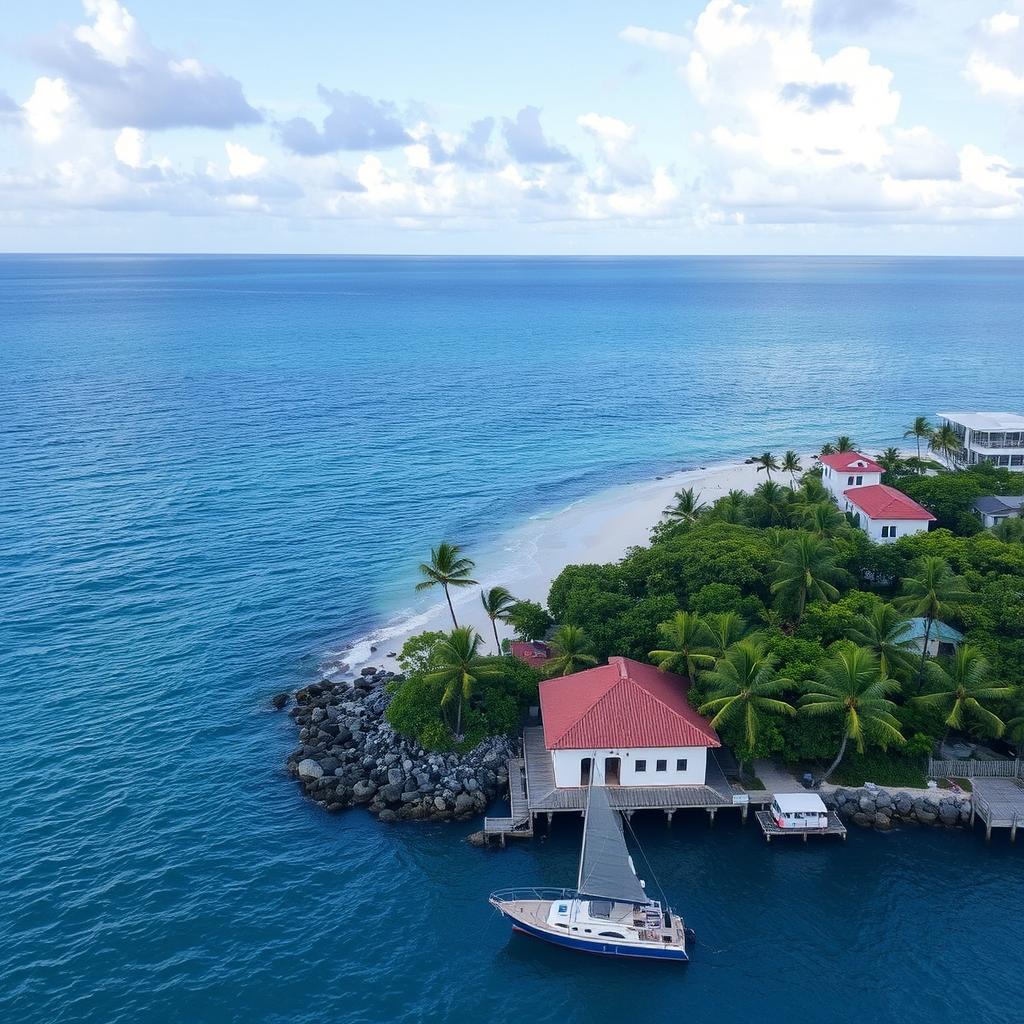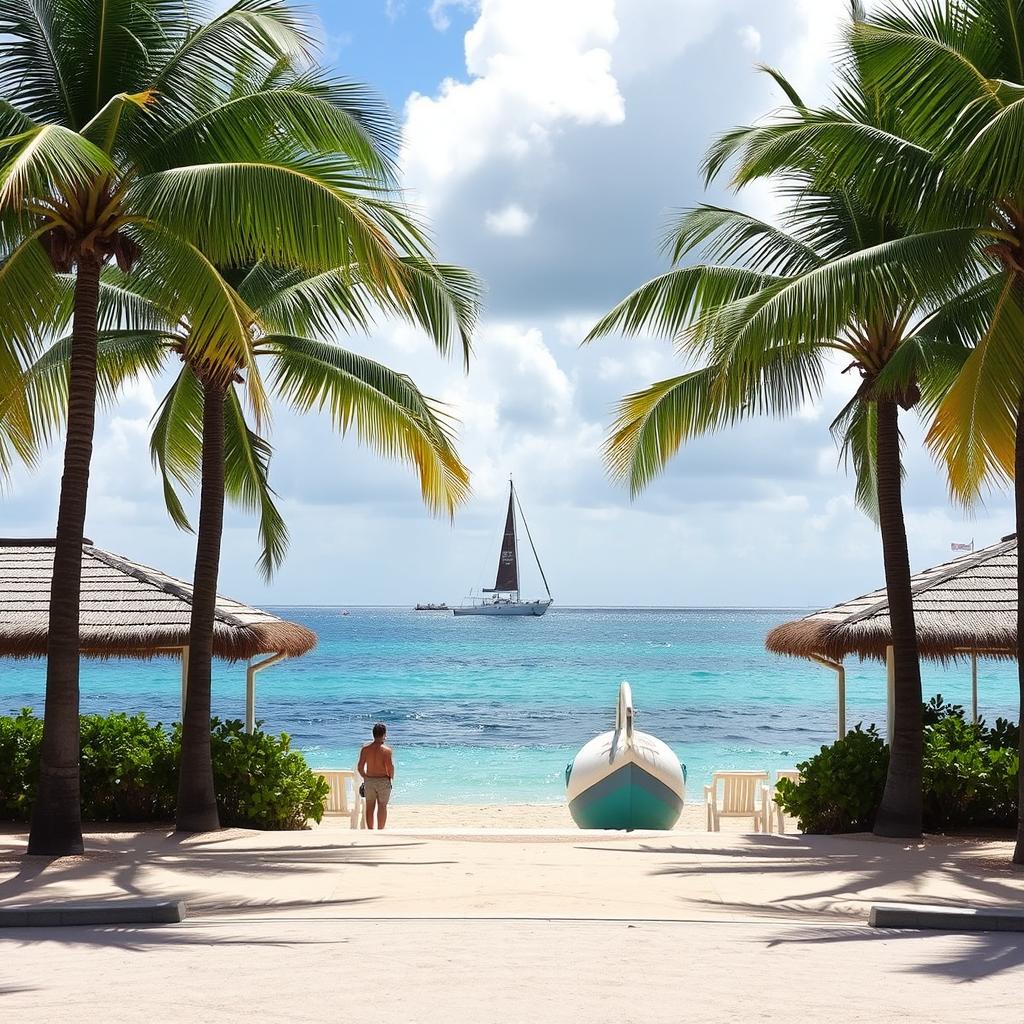Imagine waking up to the sound of gentle waves and the warmth of Caribbean sunshine on your face. Living in Grand Cayman offers not just picturesque landscapes but also a chance to embrace a lifestyle centered around relaxation, community, and opportunity. For expats, this tropical paradise is more than a vacation spot—it’s a new home where dreams of vibrant living come true. If you’re considering relocating, this comprehensive guide will walk you through everything you need to know about living in Grand Cayman.
Table of Cantents
Why Choose Grand Cayman?
A Tropical Paradise
Grand Cayman’s natural beauty is undeniably captivating. From the crystal-clear waters of Seven Mile Beach to the vibrant coral reefs, this island offers endless opportunities for outdoor enthusiasts. Whether you’re into snorkeling, diving, or simply basking in the sun, the island’s environment is perfect for relaxation and adventure.
Stable Economy
The Cayman Islands feature one of the most stable economies in the Caribbean. With a flourishing financial industry, no income tax, and a robust currency tied to the US dollar, residing here ensures financial stability and growth prospects.
High Standard of Living
Known for its exceptional quality of life, Grand Cayman offers excellent healthcare, international schooling options, and a welcoming community. Expats can expect a safe environment, modern infrastructure, and a culture that celebrates diversity.
Cost of Living in Grand Cayman
Housing Options and Rent
Finding accommodation is one of the first challenges for new expats. Housing options range from beachfront condos to suburban homes. Popular areas include West Bay, South Sound, and Seven Mile Beach. Expect to pay:
| Type | Location (Urban/Suburban) | Monthly Rent (USD) |
|---|---|---|
| 1-Bedroom Apt. | Urban | $2,500–$3,000 |
| 2-Bedroom Apt. | Suburban | $3,000–$4,500 |
Utilities and Internet
Utilities, including electricity and water, can be higher than in mainland countries due to import costs. On average, you can budget $200–$400 monthly for utilities and $100–$150 for high-speed internet.
Grocery and Dining
Groceries can be pricey due to the reliance on imports. A weekly shopping trip for basics may cost $150–$300. Dining out is a treat, with options ranging from $15 meals at local cafes to $50+ fine dining experiences.
Transportation Costs
While public transportation is limited, owning a car is common. You’ll need to factor in costs for fuel, insurance, and vehicle registration.

Finding Accommodation
Popular Expat Areas
- West Bay: Perfect for families, with a mix of urban and suburban vibes.
- South Sound: Known for its tranquility and proximity to schools.
- Seven Mile Beach Corridor: Ideal for those seeking luxury and convenience.
Tips for Renting
- Use trusted real estate agents or websites to explore listings.
- Review lease terms carefully, including maintenance responsibilities.
- Ask about hurricane preparedness for properties.
Navigating Work and Residency
Work Permits and Visas
Obtaining a work permit is essential for employment in Grand Cayman. The process typically involves employer sponsorship and includes:
- Submitting proof of employment.
- Paying associated fees.
Job Market
Expats thrive in high-demand sectors like finance, tourism, and law. Average salaries are competitive, often starting at $50,000 annually for skilled roles.
Residency Options
- Temporary Residency: Valid for up to five years.
- Permanent Residency: Requires substantial investment or long-term employment.
Education and Family Life
Schooling Options
Grand Cayman offers excellent private schools with international curriculums, such as:
- Cayman International School
- St. Ignatius Catholic School
Family-Friendly Activities
Families will love exploring local parks, beaches, and attractions like the Cayman Turtle Centre and Stingray City.
Childcare Services
Daycare and nanny services are widely available, with costs averaging $800–$1,500 monthly.
Healthcare in Grand Cayman
Medical Facilities
The island’s healthcare system includes modern hospitals like Health City Cayman Islands and the Cayman Islands Hospital. Expats can expect high-quality care.
Health Insurance
Health insurance is mandatory for all residents. Many employers provide coverage, or you can choose from local providers for plans starting around $200 monthly.
Embracing the Caymanian Lifestyle
Culture and Community
Grand Cayman’s culture is a blend of Caribbean traditions and modern influences. Annual events like Pirates Week showcase the island’s festive spirit.
Leisure Activities
Whether it’s diving at Bloody Bay Wall or enjoying vibrant nightlife, there’s always something to do. Art enthusiasts will enjoy galleries showcasing local talent.
Cuisine
Don’t miss local dishes like conch fritters, jerk chicken, and turtle stew. Explore farmer’s markets for fresh produce and unique flavors.
Tips for a Smooth Transition
Essential Preparations
- Set up local bank accounts and utilities.
- Arrange for a Cayman driver’s license within the first month.
Adjusting to Island Life
- Accept that island life moves at a slower pace.
- Join expat groups or community events to build connections.

Frequently Asked Questions (FAQ)
Is Grand Cayman expensive to live in?
Yes, the cost of living is higher than many places due to import reliance and high demand, but the benefits often outweigh the costs.
Can I bring pets to Grand Cayman?
Yes, but you’ll need to meet import regulations, including vaccinations and quarantine requirements.
How safe is Grand Cayman for expats?
Grand Cayman is known for its low crime rates and welcoming community, making it one of the safest Caribbean destinations.
Conclusion
Relocating to Grand Cayman is a life-changing decision that brings excitement and opportunity. With its stunning scenery, robust economy, and friendly community, the island offers a unique blend of work and leisure. Ready to take the leap? Start your journey to paradise today and embrace the ultimate expat experience.

